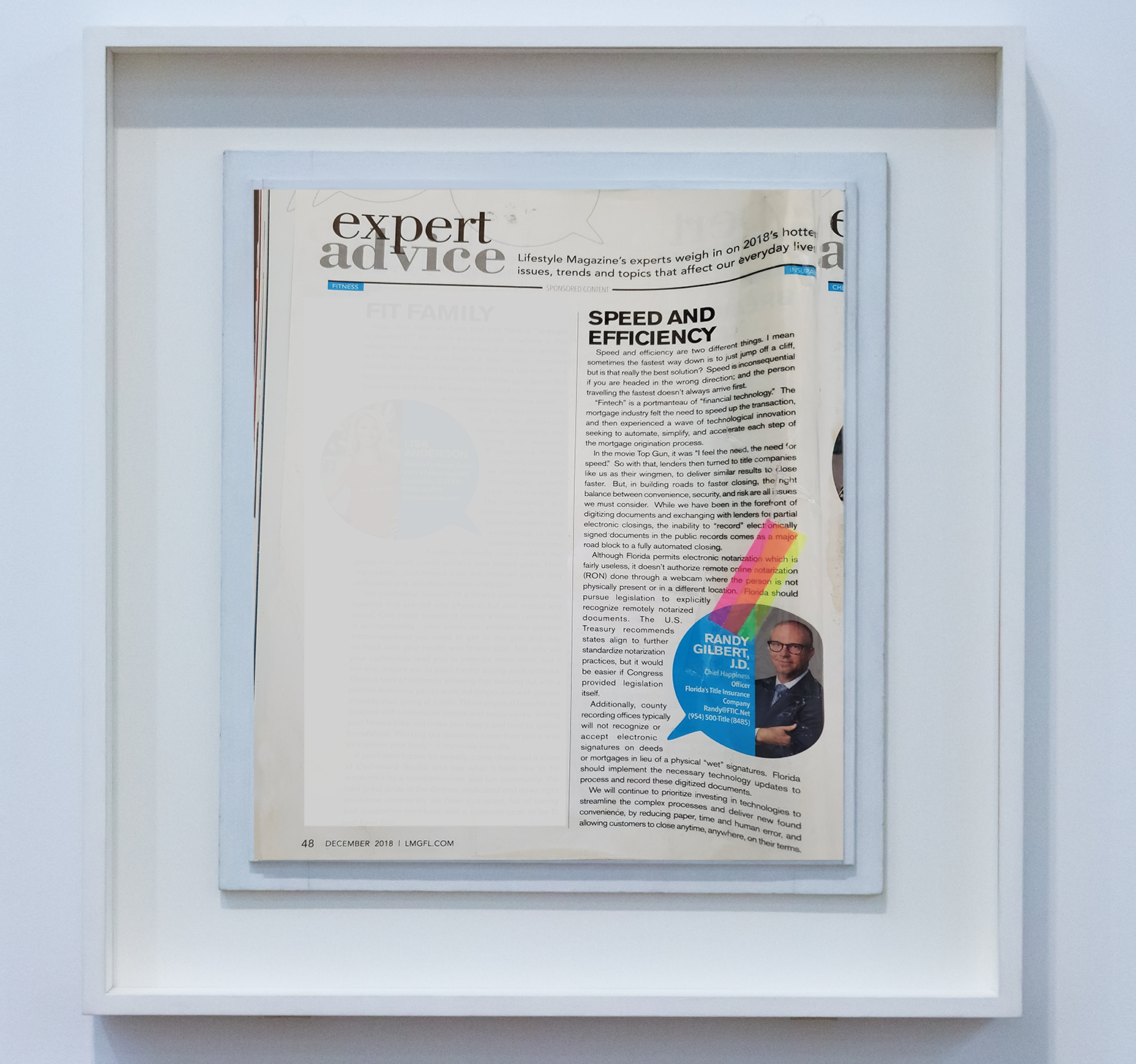Speed and efficiency are two different things. I mean sometimes the fastest way down is to just jump off a cliff, but is that really the best solution? Speed is inconsequential if you are headed in the wrong direction.
“Fintech” is a portmanteau of “financial technology.” The mortgage industry felt the need to speed up the transaction, and then experienced a wave of technological innovation seeking to automate, simplify, and accelerate each step of the mortgage origination process.
In the movie Top Gun, it was “I feel the need, the need for speed.” So with that, lenders then turned to title companies like us as their wingmen, to deliver similar results to close faster. But, in building roads to faster closing, the right balance between convenience, security, and risk are all issues we must consider. While we have been in the forefront of digitizing documents and exchanging with lenders for partial electronic closings, the inability to “record” electronically signed documents in the public records comes as a major road block to a fully automated closing.
Although Florida permits electronic notarization which is fairly useless, it doesn’t authorize remote online notarization (RON) done through a webcam where the person is not physically present or in a different location. Florida should pursue legislation to explicitly recognize remotely notarized documents. The U.S. Treasury recommends states align to further standardize notarization practices, but it would be easier if Congress provided legislation itself.
Additionally, county recording offices typically will not recognize or accept electronic signatures on deeds or mortgages in lieu of a physical “wet” signatures. Florida should implement the necessary technology updates to process and record these digitized documents.
We will continue to prioritize investing in technologies to streamline the complex processes and deliver new found convenience, by reducing paper, time and human error, and allowing customers to close anytime, anywhere, on their terms.
